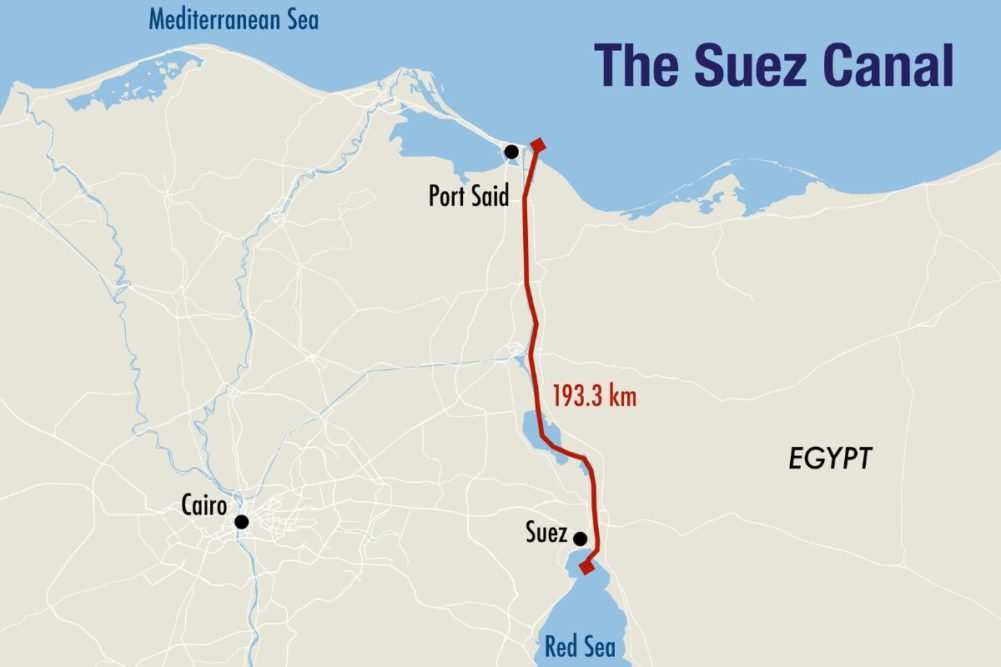GENEVA, SWITZERLAND — Grain shipments increasingly are being diverted away from the Suez Canal because of attacks on commercial vessels in the Red Sea and the Gulf of Aden by Iranian-backed Houthi militia based in Yemen, the World Trade Organization (WTO) said on a social media platform on Jan. 18.
The WTO said on X (formerly Twitter) that wheat shipments via the Suez Canal plunged to 500,000 tonnes in the first half of January, almost 40% lower year-on-year.
“Available data points to surging volume of re-routed vessels to avoid the Suez Canal in the past two weeks, albeit with no major impact on total deliveries to Asia or Eastern Africa,” the WTO noted.
The Suez Canal, which connects the Red Sea and Mediterranean Sea, is the shortest shipping route between Europe and Asia.
The WTO said about 42% of wheat shipments from the European Union, Russia and Ukraine that would typically pass through the Suez Canal chose alternative routes in the first two weeks of January. That was up from 8% in December.
The Houthis have been attacking vessels in the region since November, shortly after Hamas’ surprise attack on Israel, which elicited a powerful counterattack from Israel on the Gaza Strip, where Hamas is based. The Houthis’ claim that their attacks on the Red Sea are in response to Israel’s counteroffensive.
As a result of the hostilities, several of the world’s largest shipping firms — including Maersk, Hapag-Lloyd, and the Mediterranean Shipping Co. — have suspended shipping through the Suez Canal. Some carriers are diverting their shipments to Europe and the United States via the Cape of Good Hope, adding weeks to the journey and increasing costs.
Global grain shipping also is facing challenges in other parts of the world. Because of lower-than-normal water levels due to drought, less grain is being shipped through the Panama Canal because it cannot handle larger vessels. Also, the nearly two-year-long invasion of Ukraine by Russia has caused a reduction in Ukrainian grain exports.



